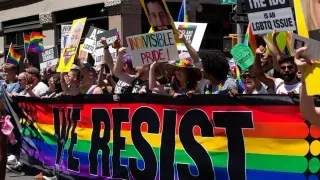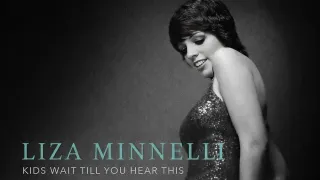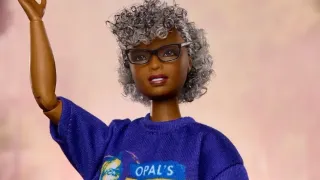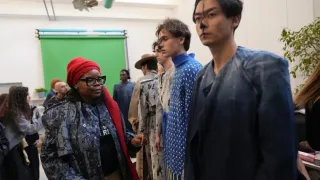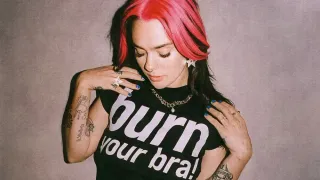November 4, 2017
Gay Australian Teen Lit Author Visits Bay Area
Heather Cassell READ TIME: 5 MIN.
San Jose students got a chance to hear gay Australian teen literature author Will Kostakis during a recent private dinner hosted in the Willow Glen neighborhood.
Kostakis was touring the United States in October to promote the American debut of his novel, "The Sidekicks," which received wide acclaim in Australia.
The young adult novel explores three teen boys' friendships following the unexpected death of their mutual best friend.
The book was inspired by the sudden death of Ben, Kostakis' best friend in high school. The novel is Kostakis' way of preserving the memory of their friendship while finally healing from the life-shattering moment more than a decade ago. (He declined to share Ben's last name.)
Writing the book also helped him address his hesitancy with being public about being gay, he said.
"I had to sort of rebuild my life from scratch because I was one of those kids who had one solid best friend," Kostakis, 28, told the Bay Area Reporter. "The rug was completely swept out from underneath my feet, but it really forced me to grow up."
His perspective of the world shifted in the weeks following Ben's death. Kostakis, who described himself as once shy and reserved, rebuilt his life by forcing himself to take more risks by opening up to his classmates and challenging himself, particularly with his writing. Up to that point, Ben was his only confidant with whom he shared the stories he wrote.
At the age of 17 he pitched a story idea to numerous publishers. Two responded, requesting a sample chapter. He quickly submitted a story he wrote about Ben's funeral, which landed him his first book deal as a teen literature author.
However, a decade later, Kostakis still wasn't confident to finally write about Ben's death, until, during a visit with his deceased best friend's mother, where he looked at a picture of Ben on the refrigerator and he realized that he was forgetting his friend.
"I realized I'd forgotten what he looked like. I knew I needed to write it before I forgot him, before I forgot what it was like to live with him and what it was like to live without him," said Kostakis.
Kostakis mined the artifacts from their childhood together.
"I really dug deep into those and I sort of came up with this story," he said. "I want to explore how their [the three boys in the story] grief would bounce off of each other, and, eventually, how that would trace a path back to each other."
He also explored his own hesitation about coming out, despite the changes in public acceptance of LGBT people in Australia, through one of the characters coming out in the book.
LGBT issues in schools
Currently, Australia is undergoing a controversial public vote by mail for same-sex marriage that closes November 7. Results, though they are nonbinding, will be announced November 15.
"Australia, at the moment, isn't a pleasant place for LGBTQI people," said Kostakis, despite 70 percent of Australians supporting same-sex marriage. The campaign has brought out LGBT allies as well as anti-marriage-equality demonstrators.
The debate about LGBT youth in schools, particularly gender nonconforming youth, has also sparked heated discussions for more than a year among lawmakers, school administrators, and parents surrounding the government-backed Safe Schools program. The program was designed to specifically educate about sexual orientation and gender identity and protect LGBT students in public schools.
National funding for the program ended in June, leaving it up to local governments to support it if they wanted to keep it, according to Education HQ News. Select resources from the program were moved to the Student Wellbeing hub, according to the program's website.
Kostakis entered the fray in early 2016, becoming "momentarily controversial," he said, when he came out in a deeply personal blog post that introduced "The Sidekicks" and talked about his ex-boyfriend, who was facing cancer.
According to media reports, a week after the post, a Catholic school canceled one of his speaking engagements, claiming that the material in his book was inappropriate due to it including a gay character.
Kostakis visits schools, inspiring young people to read and teaching them how to tell their stories.
His visit to the same Sydney school the previous year was successful, reported the Sydney Morning Herald.
Today, Kostakis doesn't shy away from speaking about being gay when kids ask him to talk about it or schools invite him to speak about LGBT issues.
Kostakis' focus remains on inspiring kids to read and write about their truths, he said.
"Nothing about me has changed. I've always been gay. It's not as if I walk into school screaming about my sexuality," he said. "My main concern has been to inspire kids to read and write about their truth and that hasn't changed."
Kids have been supportive of Kostakis, he said.
"The youth have absolutely no problem, with not only tolerating [but] being incredibly accepting of LGBTQI peers," said Kostakis. "It's usually intolerance that's imposed on the youth spaces."
He told a story about a girl who said the class read his blog during the controversy of his coming out and how he quickly tried to gloss over it, but the girl kept speaking, "No, no, no, we just want to let you know we just really, really love your blog," he recalled.
"She found the words where she could talk about what happened to me and the fury my coming out had caused. She found a safe way to express support at a school where maybe she might not have been able to voice that view," said Kostakis.
"That's always the story that I come back to because the youth, no matter what their gender identity or whatever their sexual orientation, this stuff doesn't bother them at all," he continued.
He said if officials devoted time to making schools safe for students questioning their gender identity or sexual orientation and supporting them, the world would be a better place.
Kostakis hopes that teens - American and Australian - gain a better understanding of differences between people by reading "The Sidekicks."
"[I hope] they understand the different people in their lives a little better," he said, noting that, while the book deals with grief, it also "charts a course toward hope and optimism."
Queer Indigenous Australian Author Attacked Online
If it's not queerness, racism appears to be an issue among Australia's students.
Last month, award-winning author Ellen van Neerven, 26, a queer woman who wrote "Heat and Light" and "Comfort Food," was attacked online by students, not because she is queer, but because she is an indigenous Mununjali woman.
Students were asked to explain how van Neerven "conveys the delight of discovery," reported the Morning Herald.
Students who were angry that her poem was featured on their end of year exams attacked her online. The students hacked into her Wikipedia page and bombarded her with racist messages through social media. They also attacked any journalist who supported van Neerven in their coverage of the attacks, reported Gay Star News.
David de Carvalho, CEO of the New South Wales Education Standards Authority, which oversees exams issued to high schools, said he was "appalled by that behavior."
"This is a completely inappropriate response and I hope those involved see fit to apologize to van Neerven," he said.
The attacks and van Neerven's being featured on the English portion of the exams stirred up many debates on and offline, according to media reports.
Award-winning journalist Ginger Gorman called for every student involved to automatically fail the exams in an editorial published by News.com.au.
Got an international LGBT news tip? Call or send them to Heather Cassell at Skype: healther.cassell or [email protected].
